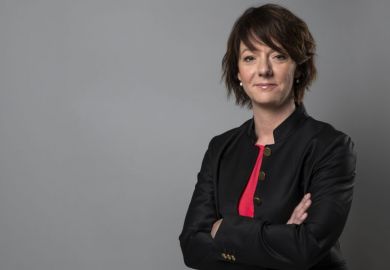Voters have granted the anti-immigration Sweden Democrats party national influence for the first time, raising concerns for universities already tied up in red tape over international recruitment.
The far-right party came second in a tight parliamentary election on 11 September, winning 20.5 per cent after almost all votes were counted, 3 percentage points more than the last election in 2018.
The swing would help give a broad right-wing coalition a three-seat majority in parliament if common ground can be found between the far right and the Moderate, Liberal and Christian Democrat parties.
The Sweden Democrats have promised to halt immigration from non-European countries, putting an end to a policy of mass asylum-based immigration that began in the 1990s, although the rules have already become increasingly strict.
Mats Benner, dean of Lund University’s School of Economics and Management, told Times Higher Education that immigration policy was “a nuisance for universities already as it is, and I would not expect it to become easier”.
“It is complicated at the moment to square restrictive migration policies with the international flow of undergraduate, master’s, PhD students and postdocs,” he said, adding that a “large proportion” of PhD and postdocs at Lund had been affected by such policies.
He said those students and academics who would not personally be affected by harsher rules might still be put off Sweden as a destination if it adopts a less welcoming posture. “I don’t foresee that changes will make [Sweden] more attractive,” he said.
While a government more hostile to immigration would do no favours for internationalisation, Professor Benner said, the Sweden Democrats did not pose the wider threat that might be expected in other countries.
Despite its origins in the neo-Nazi scene, the far-right party was “quite housebroken when it comes to universities”, he said.
“You don’t find the kind of anti-academic sentiment that you would find in, say, Australia or the UK,” Professor Benner said.
According to Tim Ekberg, a former Ministry of Education and Research official and director of planning at Lund: “Historically, the right-wing parties have had a slightly greater interest in large-scale excellence investments and a smaller interest in investing in the university colleges. There has also been a greater interest in implementing reforms that increase the autonomy of higher education institutions from the right-wing bloc.”
But the fragile nature of a loose right-wing coalition means that major changes in higher education policy were unlikely in the coming years. “Safe to say, the greatest challenge for the incoming prime minister will be managing the balance between the Sweden Democrats and the Liberal Party,” said Mr Ekberg.
During the election campaigns, the Association of Swedish Higher Education Institutions renewed calls for academic freedom to be enshrined in the constitution, but Professor Benner said such “high-hanging fruit” would be beyond the reach of the now-expanded right.
“The economic downturn, rising inflation, interest rate increases, rising energy costs and increased rents will probably affect the higher education and research sector to a higher extent than new political reforms,” said Mr Ekberg.
Register to continue
Why register?
- Registration is free and only takes a moment
- Once registered, you can read 3 articles a month
- Sign up for our newsletter
Subscribe
Or subscribe for unlimited access to:
- Unlimited access to news, views, insights & reviews
- Digital editions
- Digital access to THE’s university and college rankings analysis
Already registered or a current subscriber?








